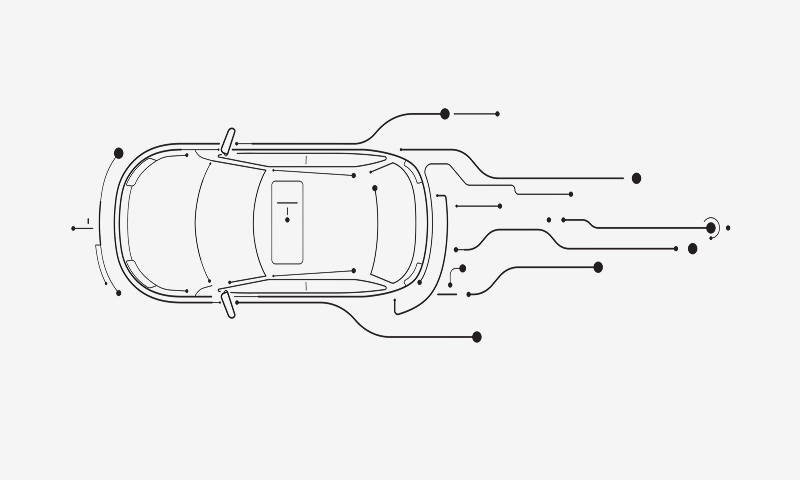Adaptive Cruise Control Calibration: Safety, Accuracy and Efficiency

Adaptive Cruise Control (ACC) is one of the leading solutions in today’s cars, improving both driver comfort and safety. This technology automatically adjusts the vehicle’s speed to maintain a safe distance from the car in front, helping to avoid potential collision risks and provide a more comfortable driving experience. However, precise calibration is essential for adaptive cruise control to work optimally.
Why is ACC calibration not necessary?
Proper calibration is necessary for the system to accurately interpret the environment and react accordingly. If calibration is not done correctly, the system may not display warnings or make necessary adjustments, affecting both safety and the driving experience.

Calibration of the adaptive cruise control is required when the system fails or shows errors such as not maintaining distance or reacting late – this may indicate anomalies in the sensors or radar that need to be corrected by accurate calibration.
Adaptive cruise control calibration – highest precision
Adaptive Cruise Control calibration involves fine-tuning radar, cameras and other sensors that act as the vehicle’s “senses” in perceiving its surroundings. This process is essential to ensure that the system’s sensitivity, responsiveness and accuracy of safety functions are impeccable. Only a properly calibrated system can reliably detect oncoming vehicles, maintain a safe distance and adjust speed in real time.
Calibration usually becomes necessary in the following cases:
If the ACC system is not working or displays errors
After replacing the windscreen, if the camera or sensor is integrated into the glass
After an accident or even a minor impact that may affect the sensor position
After repair of the body or chassis, which may change the angles of the radar sensor or camera
After adjusting the wheel alignment, which changes the geometry of the car’s direction of movement
After replacement of electronic components (cameras, sensors, control units)
After car tuning or modifications that affect height, suspension or design
After updating the software or deleting errors in the vehicle control unit
Calibration is not just a technical operation – it is a kind of “vision correction” that allows the car to see its surroundings clearly and react accordingly. Adaptive cruise control that is fine-tuned is not just a matter of comfort, but above all a guarantee of safety.
Accuracy and safety – our calibration promise

Original Hella software and professional test bench
Calibration based on accuracy.
Static and dynamic ADAS calibration
A tailored approach to suit your car’s requirements.
Digital reporting from Hella Cloud
Clear proof of successful calibration.
Insured liability also during dynamic calibration
Your car is in safe hands.
Full service cycle
We also deal with electronics issues related to ADAS calibration.
Pricing
Adaptive cruise control calibration prices
ECU diagnostics / fault clearingfrom 49 EUR
Radar sensor adjustmentfrom 49 EUR
Radar sensor calibration99 EUR
Calibration of laser (LiDAR) sensors149 EUR
Contents
Need help?







